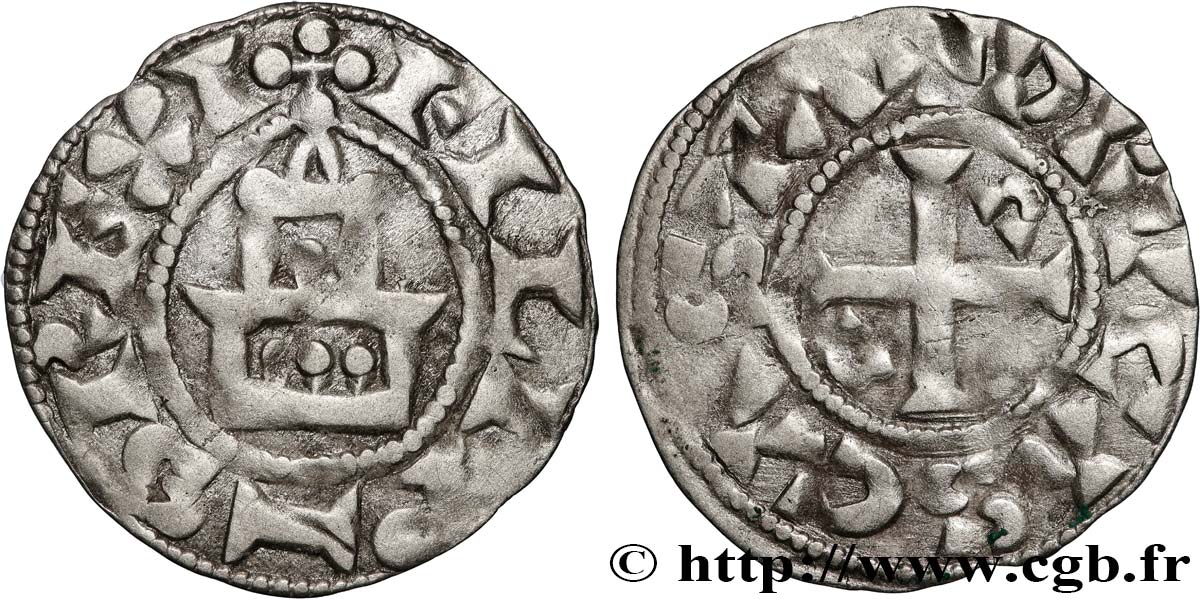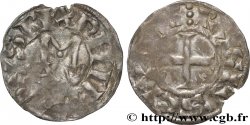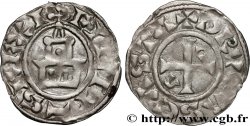Obverse
Obverse legend : FILIP-S REX I.
Obverse description : Église sommée d’une croix bouletée coupant la légende à 12 heures.
Obverse translation : (Louis, roi).
Reverse
Reverse legend : + DRVCAS CASTA.
Reverse description : Croix cantonnée aux 2 et 3 d'un oméga.
Reverse translation : (Château de Dreux).
Historical background
PHILIP I OF France
(4/08/1060-29/07/1108)
Ascended to the throne at the age of eight, Philip I witnessed the birth of a mortal danger: the Anglo-Norman monarchy.. The conquest of England in 1066 made the Duke of Normandy, William, the master of a dual monarchy, without the King of France, then placed under the tutelage of Baudoin V, Count of Flanders, being able to do anything to oppose it. But when William had pacified England, Philippe limited his expansion on the continent, in Brittany and in Vexin, favored the rebellions of the vassal barons of the Duke of Normandy and that of his son Robert Courte-Heuse. After the death of Guillaume, wounded at the siege of Mantes (1087), the fight continued against his successors, Guillaume le Roux and Henri Beauclerc. At the same time, Philippe I began the policy of increasing the royal domain that his successors would pursue for so many centuries: in turn, Vermandois, Vexin and Valois, Gâtinais fell into his hands.. In 1101, he bought part of Berry. But, for these few successes, what vain wars, what failures against the petty lords of northern France! The dispute with the papacy, already in germ under his predecessors, appeared in broad daylight.. The king opposed the reforms advocated by Popes Gregory VII and Urban II, which threatened his authority over the bishops. The hostility also took a more personal turn.. In 1092, Philippe had repudiated his legitimate wife, Berta, daughter of the Count of Holland, to unite with Bertrade de Montfort, Countess of Anjou, wife of Foulque le Réchin.. The couple was excommunicated several times publicly, but refused to separate, and until the end of his life, the king found himself in trouble with the Church.. His son from a first marriage, Louis, was associated with the government from 1098, with the title of dux exercitus (head of the army). When Philip died in 1108, his son had exercised the reality of power for several years, without yet having been crowned: henceforth, the legitimacy of the dynasty was sufficiently anchored for this ceremony not to have seemed essential during the lifetime of the reigning king: a sign that the long reign of Philippe, a disputed personality, had not been exempt from positive results.










 Report a mistake
Report a mistake Print the page
Print the page Share my selection
Share my selection Ask a question
Ask a question Consign / sell
Consign / sell
 Full data
Full data






